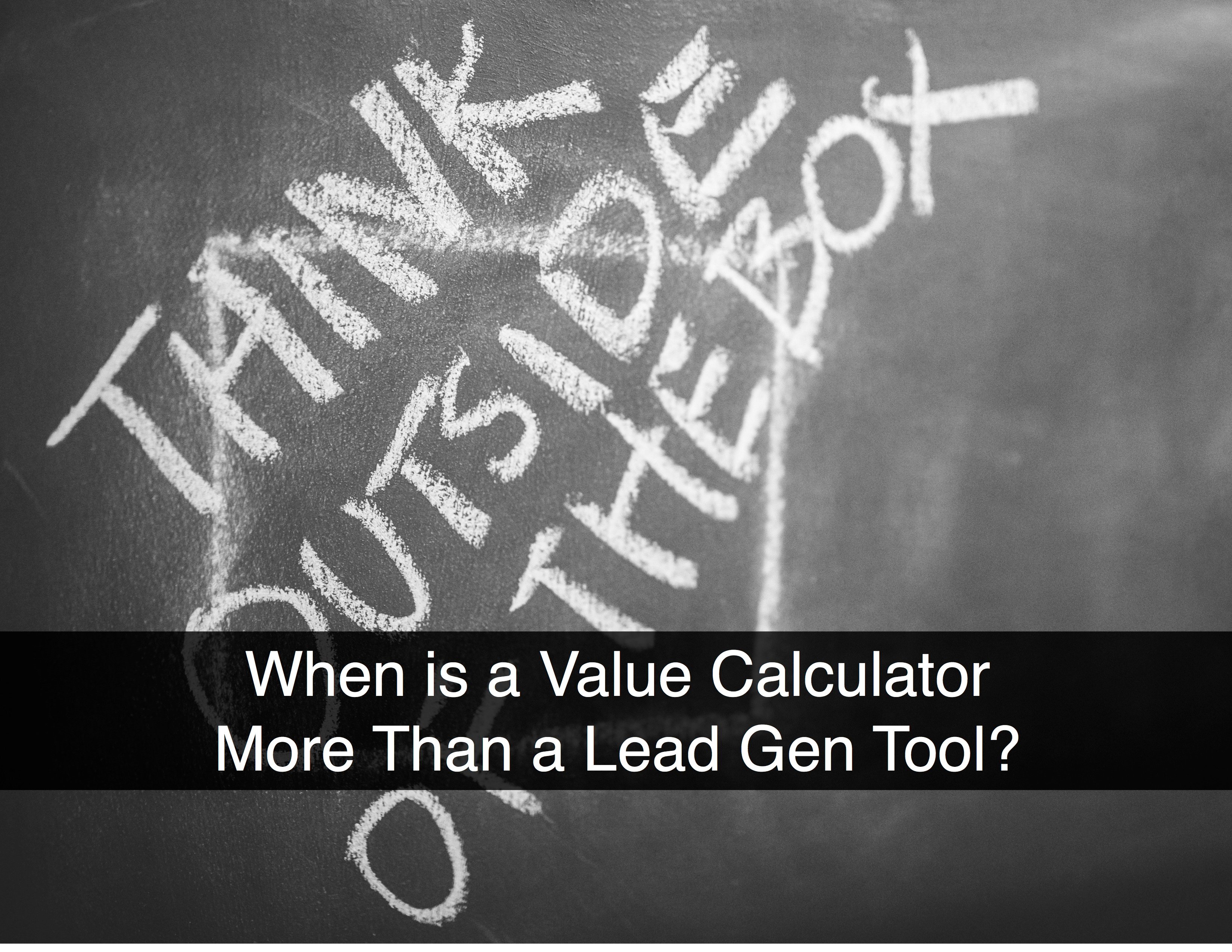 For years I've been telling people that value calculators are used for marketing and lead generation and ROI tools are used by sales to close deals.
For years I've been telling people that value calculators are used for marketing and lead generation and ROI tools are used by sales to close deals.
Until now, that is.
One of our clients is currently using a value calculator deeper into the sales process with great success, so we’re now promoting this process to other companies with similar solution characteristics (including complexity and price).
Although value calculators are typically used as a self-service lead-capture tool on a website, they can also be used by your sales team. Here are two use-cases for your consideration that demonstrate how a value calculator can enhance your sales process and results.
Engaging and Qualifying Leads
When a lead comes in, you can use a value calculator to focus your efforts on understanding the customer’s problem and quantifying areas of potential improvement. This takes place during the first call and long before you talk about or demo your solution.
If the prospect is engaged and interested, you can email the value calculator’s business case report with a link that allows them to directly engage with the tool, modify the analysis, and generate a new report. This makes it easy to determine whether the prospect is serious or just kicking the tires.
If they’re not willing to spend a few minutes with you analyzing the business case using the value calculator, then they are likely not a serious buyer. If they re-engage with the value calculator on their own after your call, they are likely a very serious buyer. You will also have visibility into their level of engagement, including what values they changed as well as the business case report that they generated.
Prospecting with a Value Calculator
A value calculator can be helpful for cold prospecting. Before calling or sending your first email, create an analysis based on public information and/or your best guesses relative to the prospect. Save the analysis using the prospect’s contact information.
Then send the prospect an email that includes the personalized business case report and a link to the interactive value calculator tool. You can experiment with different messages in the email, but it should always focus on the value your offering can deliver. Let them know that they can adjust the business case you sent, and encourage them to engage with the tool to fine tune their results.
This approach typically delivers far better conversion results than cold calls or other techniques. You will know if the prospect actually clicks through and interacts with the tool and if they do, they are much more likely to take your call.
Improving Prospect Insights to Close More Deals
An important side benefit of either use-case is that over time, you will gather increasingly better information about prospective customers and you will be able to use that data to increase your probability of closing more deals. More importantly, you can use this information to better target customers based on the intelligence collected including where you actually won business.
In some cases, especially for less complex offerings with lower average selling prices, the business case report from a value calculator may be all that’s needed to close the sale. For larger deals, you may still need to use an ROI tool to fully cost-justify the investment and provide the CFO (or their proxy) with the key financial metrics they need to approve the deal.
Conclusion
Bottom line, in the right circumstances value calculators can add significant value further into the sales process than I had previously believed. Consider experimenting with a value calculator to not only increase qualified leads, but also to enable sales to close more deals.









